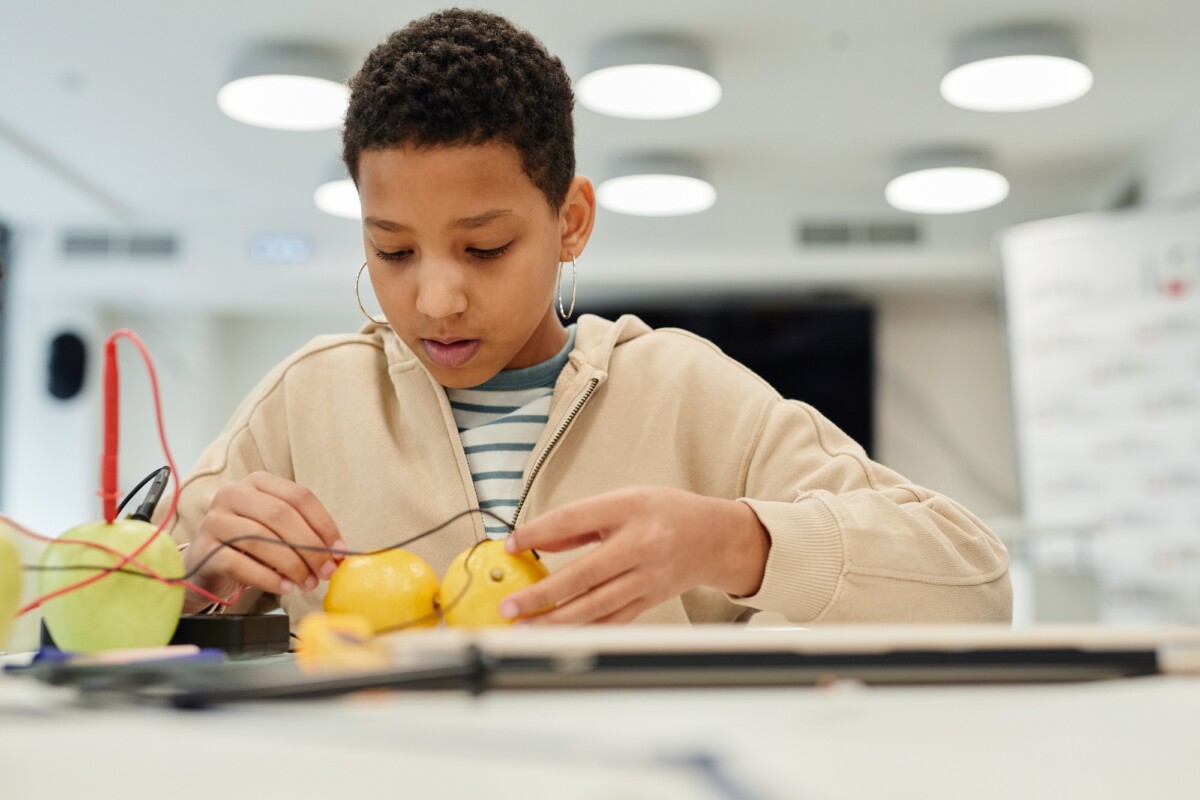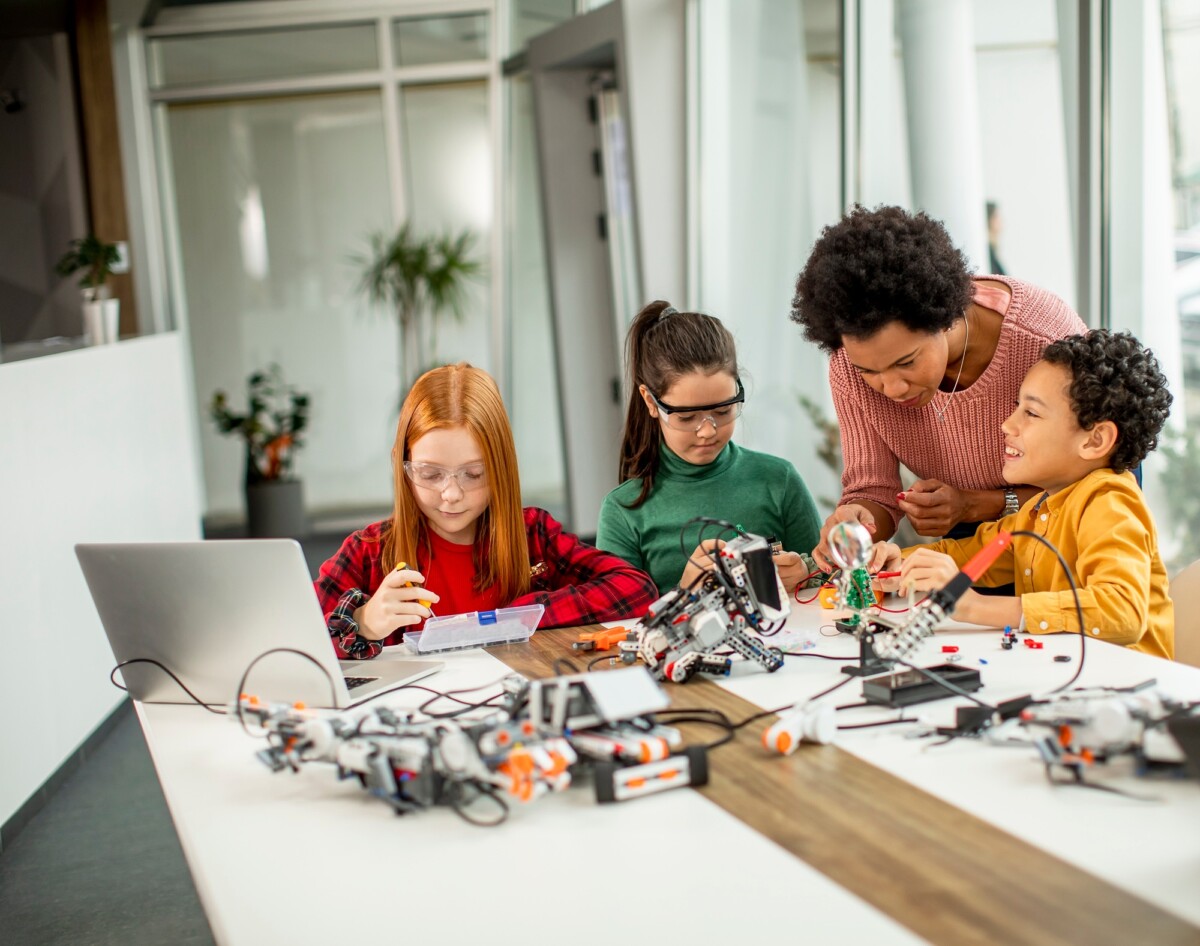
Integrating Science and Early Childhood education is crucial for fostering curiosity and critical thinking in young learners. By incorporating science into the toddler curriculum, educators can create engaging experiences that promote exploration and discovery. This foundational knowledge not only enhances cognitive skills but also lays the groundwork for future learning in various subjects, including technology in preschool.
Benefits of Science in Early Childhood Education
- Encourages Curiosity: Children naturally ask questions about the world around them. Science nurtures this curiosity, encouraging them to explore and experiment.
- Develops Problem-Solving Skills: Engaging in scientific activities helps toddlers learn to think critically and solve problems creatively.
- Promotes Collaboration: Science projects often involve teamwork, teaching children the value of working together and sharing ideas.
Practical Applications
Incorporating science into daily activities can be simple and fun. For instance, outdoor exploration allows children to observe nature, while simple experiments with water and sand can teach basic scientific principles. By integrating science and early childhood education, we prepare children for a future where they can confidently navigate an increasingly complex world.
Start your journey to a brighter future—Enroll now!
How Do Children Naturally Explore Scientific Concepts?
Integrating science into early childhood education is crucial for fostering curiosity and critical thinking. Children naturally explore scientific concepts through play and observation, laying the groundwork for future learning. This integration not only enhances their understanding of the world but also aligns with the goals of a comprehensive toddler curriculum.
How Do Children Naturally Explore Scientific Concepts?
- Observation: Children observe their surroundings, noticing changes in nature, weather, and even their own bodies. This sparks questions and encourages exploration.
- Experimentation: Simple experiments, like mixing colors or planting seeds, allow children to test hypotheses and see results firsthand. This hands-on approach is essential in early childhood science education.
- Technology in Preschool: Incorporating technology, such as interactive apps and educational videos, can enhance children’s understanding of scientific concepts. It provides diverse ways to engage with material, making learning both fun and effective.
Integrating Science into Daily Activities: Practical Examples
Integrating science into early childhood education is essential for fostering curiosity and critical thinking in young learners. By incorporating scientific concepts into daily activities, educators can create a rich learning environment that encourages exploration and discovery. This approach not only enhances the toddler curriculum but also prepares children for a future where technology in preschool plays a significant role.
Hands-On Experiments
Engaging toddlers in simple experiments can spark their interest in science. For instance, mixing baking soda and vinegar to create a fizzy reaction teaches basic chemical reactions while being fun and interactive.
Nature Walks
Taking children on nature walks allows them to observe plants, insects, and weather patterns firsthand. This experience helps them connect with the natural world and understand scientific concepts like ecosystems and habitats.
Technology Integration
Utilizing technology in preschool can enhance science learning. Interactive apps and educational videos can introduce scientific concepts in an engaging way, making learning accessible and enjoyable for young children.
What Role Do Educators Play in Science and Early Childhood Learning?
Integrating science into early childhood education is crucial for fostering curiosity and critical thinking in young learners. Educators play a vital role in this integration, creating a foundation for lifelong learning. By incorporating science into the toddler curriculum, they help children explore the world around them through hands-on experiences and inquiry-based learning.
Facilitating Exploration
Educators encourage exploration by providing opportunities for children to ask questions and investigate. They create a safe environment where toddlers can experiment with materials, fostering a love for science and early childhood learning.
Incorporating Technology in Preschool
Technology in preschool can enhance science learning. Educators can use interactive tools and apps that engage children in scientific concepts, making learning fun and accessible. This integration not only supports traditional learning but also prepares children for a tech-savvy future.
Creating a Science-Friendly Classroom Environment
Creating a science-friendly classroom environment is essential for integrating science into early childhood education. By fostering curiosity and exploration, educators can ignite a passion for learning in young children. This approach not only enhances their understanding of science but also supports their overall development in a toddler curriculum.
Engaging Learning Spaces
To create an inviting atmosphere, consider the following:
- Interactive Science Stations: Set up areas where children can experiment with simple materials, like water, sand, or magnets.
- Nature Corners: Incorporate plants, rocks, and insects to encourage observation and inquiry.
- Technology in Preschool: Use age-appropriate tech tools, such as tablets or interactive whiteboards, to introduce scientific concepts through engaging apps and videos.
Encouraging Inquiry and Exploration
Encouraging questions is vital. Teachers can:
- Model Curiosity: Ask open-ended questions to stimulate discussion.
- Facilitate Hands-On Activities: Provide opportunities for children to conduct simple experiments, fostering a sense of discovery.
- Integrate Science and Early Childhood: Blend science with other subjects, like art and literacy, to create a holistic learning experience.
Hands-On Experiments: Engaging Young Minds in Science
Integrating science into early childhood education is crucial for fostering curiosity and critical thinking. Young children are naturally inquisitive, and incorporating science into their learning experiences helps them explore the world around them. Through hands-on experiments, educators can ignite a passion for discovery that lasts a lifetime.
The Role of Experiments in Learning
Hands-on experiments are a vital component of a toddler curriculum that emphasizes science and early childhood education. These activities allow children to engage directly with materials, promoting sensory exploration and cognitive development. By observing, predicting, and experimenting, toddlers learn essential scientific concepts in a fun and interactive way.
Benefits of Integrating Technology in Preschool
Technology in preschool can enhance science learning by providing interactive tools that make experiments more engaging. For example, using tablets or educational apps can help children visualize scientific concepts and track their observations. This integration not only supports traditional learning but also prepares young learners for a tech-savvy world.
Start your journey to a brighter future—Enroll now!
The Impact of Outdoor Exploration on Scientific Understanding
Integrating science into early childhood education is crucial for fostering curiosity and critical thinking. Outdoor exploration serves as a dynamic platform for young learners to engage with their environment, enhancing their understanding of scientific concepts. By incorporating hands-on experiences, educators can effectively weave science into the toddler curriculum, making learning both fun and impactful.
Engaging with Nature
- Observation Skills: Children learn to observe changes in nature, such as the weather or plant growth.
- Inquiry-Based Learning: Questions arise naturally, prompting discussions about cause and effect.
Technology in Preschool
- Interactive Learning: Utilizing technology, such as tablets, can complement outdoor activities, allowing children to document their findings.
- Virtual Exploration: Technology can also introduce concepts that may not be easily accessible in the immediate environment, broadening their scientific understanding.
Through outdoor exploration, children not only grasp scientific principles but also develop a love for learning. This integration of science and early childhood education encourages lifelong curiosity, setting a strong foundation for future academic success.
How Can Parents Support Science Learning at Home?
Integrating science into early childhood education is crucial for fostering curiosity and critical thinking in young learners. Science and early childhood go hand in hand, as children naturally explore their environment. By supporting science learning at home, parents can enhance their child’s understanding and appreciation of the world around them.
Engage in Everyday Experiments
- Kitchen Science: Involve your toddler in simple cooking tasks. Measuring ingredients teaches basic math and science concepts.
- Nature Walks: Explore local parks or gardens. Discuss plants, animals, and weather to spark curiosity about nature.
Utilize Technology in Preschool
Incorporate educational apps and videos that focus on science topics. Technology in preschool can make learning interactive and fun, providing visual and auditory stimulation that enhances understanding. Just ensure screen time is balanced with hands-on activities.
Discover How DegreeOnline.Education Enhances Science Education for Young Learners
Integrating science into early childhood education is essential for fostering curiosity and critical thinking in young learners. At DegreeOnline.Education, we believe that a strong foundation in science and early childhood education not only enhances cognitive development but also encourages exploration and discovery. By incorporating hands-on activities and interactive lessons, we make science accessible and enjoyable for toddlers.
Engaging Toddler Curriculum
Our toddler curriculum is designed to spark interest in scientific concepts through play-based learning. Activities such as simple experiments, nature walks, and sensory play allow children to observe and interact with their environment. This experiential learning approach helps them understand basic scientific principles while developing essential skills.
Technology in Preschool
Incorporating technology in preschool settings can further enhance science education. Tools like tablets and interactive whiteboards can provide engaging resources for young learners. By using educational apps and videos, children can explore scientific topics in a fun and interactive way, making learning both effective and enjoyable.
Start your journey to a brighter future—Enroll now!
FAQs
-
Why is science important in early childhood?
Science helps young children develop critical thinking, problem-solving skills, and curiosity about the world around them. -
At what age should I start introducing science concepts to my child?
You can introduce simple science concepts from infancy through sensory experiences and exploration. -
How do young children learn science?
They learn best through hands-on experiences, observation, questioning, and experimenting with their surroundings. -
What are some simple science activities for toddlers and preschoolers?
Activities like playing with water, planting seeds, making baking soda and vinegar volcanoes, and exploring magnets are great for young children.
Related Blogs
- How Is Technology Revolutionizing Preschool Learning?
- What Should a Comprehensive Toddler Curriculum Include?
- What Is an ECE Degree and How Does It Impact Your Career?
- How Does Citizenship Education Prepare Students for Global?
- What Role Does Climate Education Play in Today’s Schools?
- What Does Global Citizenship Meaning in a Modern Context?
- What Are the Hallmarks of Quality Education Today?
- How Can Sustainable Education Practices Transform Learning?
- What Does “Competency Based Masters Meaning” Really ?
- What Trends Are Shaping the Higher Education Industry?
- What Are the Most Pressing Issues in Higher Education Today?
- Which Trends in University Education? A Complete Guide
- Where to Find the Best Job Training and Placement?
- How to Get a Union Apprentice Jobs? A Complete Guide




